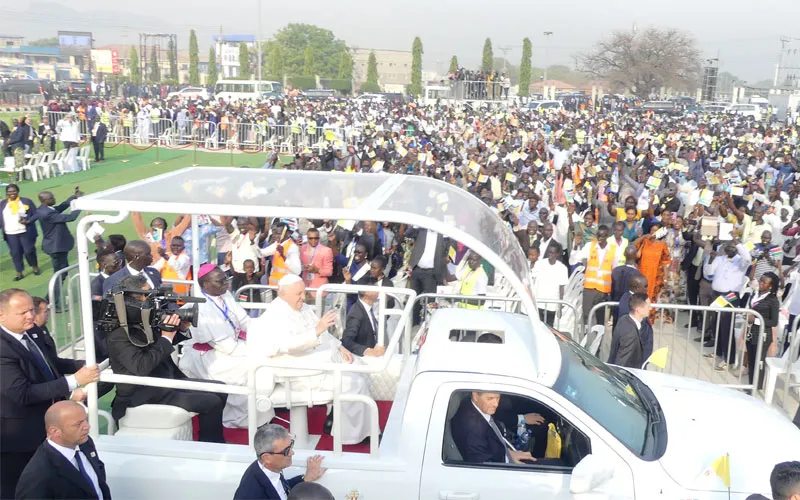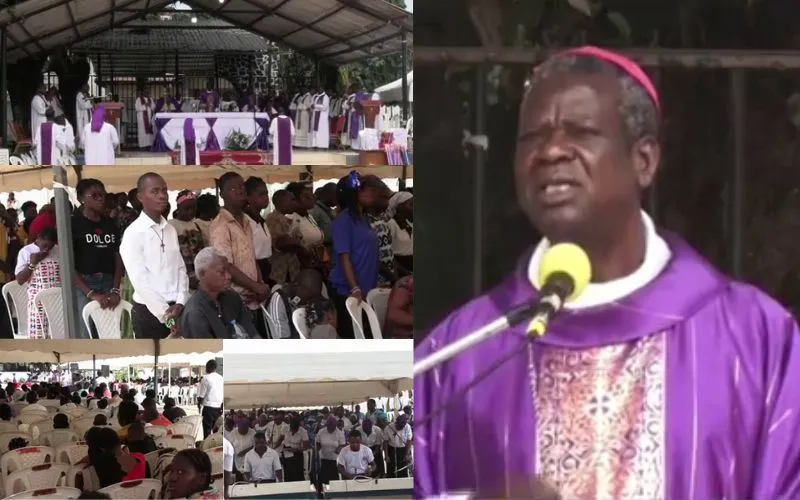He recalls the Holy Father’s strong messages when he arrived in DRC, “Hands off Africa! Stop choking Africa, it is not a mine to be stripped or a terrain to be plundered!” and on the first day of his peace pilgrimage in South Sudan, “No more bloodshed, no more conflicts, no more violence”.
“Recalling the famous phrase of Saint John Paul II, Pope Francis said: ‘African solutions must be found to African problems,’” Fr. Simbine says.
According to the Mozambican-born SECAM Secretary General, Pope Francis had come to Africa as a father and pastor, a capacity through which he had strengthened the faith of millions of Catholics, “who despite many challenges faithfully keep their faith in Jesus Christ: they suffer in Christian hope.”
“Our joy was great as we heard the Holy Father, after presiding over the Holy Eucharist in the Roman Rite for the Dioceses of Zaire saying: ‘Yours is a Church present in the lived history of this people, deeply rooted in its daily life, and the forefront of charity. It is a community capable of attracting others, filled with infectious enthusiasm,” Fr. Simbine recounts.
In his message of gratitude to Pope Francis, the member of the Clergy of Mozambique’s Xai-Xai Diocese recalls Pope Francis’ recognition of the people of God in Africa as characterized with enthusiasm, joy, and missionary zeal as to give oxygen to the universal Church.
(Story continues below)
According to the official of the Symposium of Catholic Bishops in Africa, Pope Francis had set the pace for interreligious dialogue in Africa with his visit.
“He came as a Pontiff and left words that mark out the path that the Catholic Church in Africa must follow henceforward for the years to come,” he says, and adds, “The ecumenical prayer led by three leaders (Pope Francis, the Anglican Archbishop of Canterbury, Justin Welby, and the Moderator of the Church of Scotland, Rev. Dr. Iain Greenshields) encouraged African Christians to be one: pray together and work together.”
The Secretary General of SECAM further says, “Thank you, Holy Father, for having come to Africa again, to strengthen the faith of millions of Catholics.”
“May the Blessed Virgin Mary, Queen of Africa, intercede for your health and your mission, Pope Francis,” Fr. Simbine implores in his message shared with ACI Africa February 5.
Agnes Aineah is a Kenyan journalist with a background in digital and newspaper reporting. She holds a Master of Arts in Digital Journalism from the Aga Khan University, Graduate School of Media and Communications and a Bachelor's Degree in Linguistics, Media and Communications from Kenya's Moi University. Agnes currently serves as a journalist for ACI Africa.








